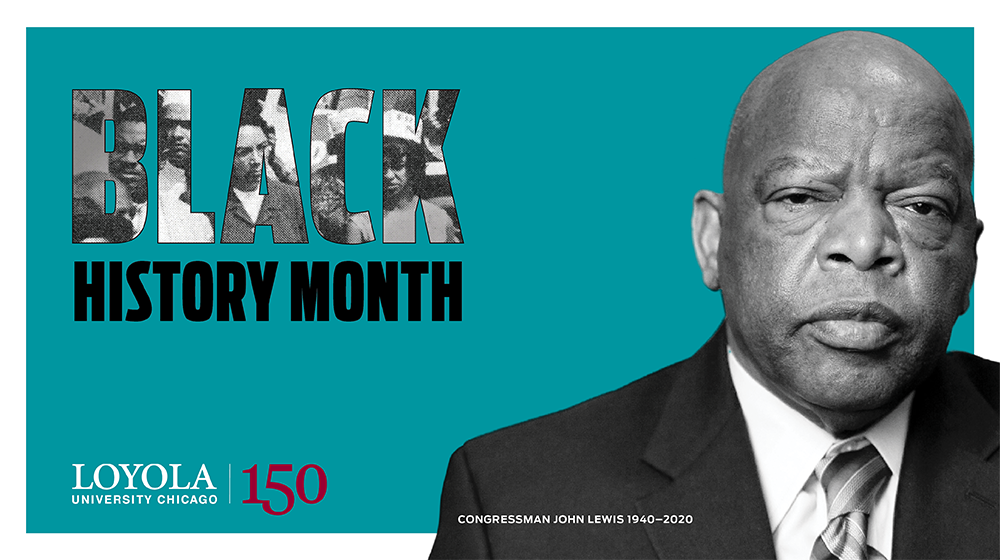Title
Preliminary Evidence for a Race-Based Stress Reduction Intervention for Black Women at Risk for Cardiovascular Disease
Description
Dr. Regina Conway-Phillips' Bio:
Dr. Regina Conway-Phillips is a tenured Associate Professor who joined Marcella Niehoff School of Nursing faculty in 2011. Her program of research is focused on breast cancer screening behaviors in African American women, spirituality, and health care disparities. She has a vision for inclusive excellence that includes building capacity and supporting inclusion of diverse faculty and students, as well as supporting faculty in achieving their teaching, research and scholarship goals.
Dr. Karen Saban's – Bio
Dr. Karen Saban is a Professor and Associate Dean for Research and Scholarly Innovation in the Marcella Niehoff School of Nursing, Loyola University Chicago. Her research seeks to integrate social context and inflammation with epigenetic signature to explain disparities in cardiovascular disease/stroke in disadvantaged women and to examine interventions that may ameliorate stress-related inflammation in vulnerable populations.
Abstract:
Growing evidence demonstrates that perceived discrimination is a significant contributing factor to psychological distress, low-grade chronic inflammation, and cardiovascular disease (CVD), particularly among Black women who face both racism and sexism. Unfortunately, there are few evidence-based interventions that ameliorate the chronic stress and inflammation associated with racism and discrimination in Black women at risk for CVD. Resilience, Stress, and Ethnicity (RiSE) is a group-based, 8-week intervention that integrates cognitive-behavioral and mindfulness strategies focused on the biopsychosocial impact of racism, racial identity development and resilience/empowerment. Previous research suggests that RiSE improves coping with racism, enhancing the use of adaptive coping strategies through emotional validation and cognitive restructuring of the response to racism and discrimination. However, no structured assessment has been made of RiSE as an intervention for decreasing stress-related symptoms, inflammation, and CVD risk in Black women. The purpose of this pilot study was to evaluate the feasibility of RiSE in Black women and to examine the effectiveness of the program in improving well-being, developing effective coping skills, and decreasing inflammatory burden. Black women (N=74) (mean age 57.2+10.8 years) who had risk factors for CVD were randomized to either the RiSE intervention group (N=40) or the no-intervention control group (N=34). Attrition rate for the RiSE program was low (11%) with women attending an average of 6 of the 8 weekly classes. Findings demonstrate that women who participated in RiSE reported a significant decline in the use of avoidance coping (p=.04). In addition, we found a trend for RiSE participation to be associated with decreased inflammation as evidenced by a decline in TNF-alpha (p=.09) and a decline in hsCRP (p =.08). Although additional research is needed to confirm our findings, RiSE may be a feasible and effective intervention in reducing chronic stress and improving the health of Black women.
Creative Commons License

This work is licensed under a Creative Commons Attribution-Noncommercial-No Derivative Works 3.0 License.
Preliminary Evidence for a Race-Based Stress Reduction Intervention for Black Women at Risk for Cardiovascular Disease
Dr. Regina Conway-Phillips' Bio:
Dr. Regina Conway-Phillips is a tenured Associate Professor who joined Marcella Niehoff School of Nursing faculty in 2011. Her program of research is focused on breast cancer screening behaviors in African American women, spirituality, and health care disparities. She has a vision for inclusive excellence that includes building capacity and supporting inclusion of diverse faculty and students, as well as supporting faculty in achieving their teaching, research and scholarship goals.
Dr. Karen Saban's – Bio
Dr. Karen Saban is a Professor and Associate Dean for Research and Scholarly Innovation in the Marcella Niehoff School of Nursing, Loyola University Chicago. Her research seeks to integrate social context and inflammation with epigenetic signature to explain disparities in cardiovascular disease/stroke in disadvantaged women and to examine interventions that may ameliorate stress-related inflammation in vulnerable populations.
Abstract:
Growing evidence demonstrates that perceived discrimination is a significant contributing factor to psychological distress, low-grade chronic inflammation, and cardiovascular disease (CVD), particularly among Black women who face both racism and sexism. Unfortunately, there are few evidence-based interventions that ameliorate the chronic stress and inflammation associated with racism and discrimination in Black women at risk for CVD. Resilience, Stress, and Ethnicity (RiSE) is a group-based, 8-week intervention that integrates cognitive-behavioral and mindfulness strategies focused on the biopsychosocial impact of racism, racial identity development and resilience/empowerment. Previous research suggests that RiSE improves coping with racism, enhancing the use of adaptive coping strategies through emotional validation and cognitive restructuring of the response to racism and discrimination. However, no structured assessment has been made of RiSE as an intervention for decreasing stress-related symptoms, inflammation, and CVD risk in Black women. The purpose of this pilot study was to evaluate the feasibility of RiSE in Black women and to examine the effectiveness of the program in improving well-being, developing effective coping skills, and decreasing inflammatory burden. Black women (N=74) (mean age 57.2+10.8 years) who had risk factors for CVD were randomized to either the RiSE intervention group (N=40) or the no-intervention control group (N=34). Attrition rate for the RiSE program was low (11%) with women attending an average of 6 of the 8 weekly classes. Findings demonstrate that women who participated in RiSE reported a significant decline in the use of avoidance coping (p=.04). In addition, we found a trend for RiSE participation to be associated with decreased inflammation as evidenced by a decline in TNF-alpha (p=.09) and a decline in hsCRP (p =.08). Although additional research is needed to confirm our findings, RiSE may be a feasible and effective intervention in reducing chronic stress and improving the health of Black women.




Comments
Presentation: Black History (panopto.com)